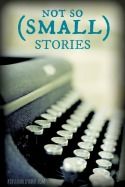"Oh, you're a writer? That's so cool. I write. Kind of. I kind of write. I mean, I would love to be a writer."
Would you?
And I tell them, in no uncertain terms, that they should not be a writer unless they absolutely have to be.
Being a writer means spending hours every day on work that—possibly—no one will ever see. You could be spending those hours on something different, you know, like baking banana bread, or reading a book you’ve been meaning to get around to forever, or taking a nap, for heaven’s sake. You could be relaxing. You will instead be cramming writing in to all the empty corners of your life, and so your life will feel like a jigsaw puzzle with too many pieces, because you’ll simply never make everything fit.
Being a writer means you will have days when the Muse comes floating in your window all covered in silver sparkles, bearing gift-wrapped ideas and fantastic phrases and these truly brilliant plot lines, but those days almost never happen. The Muse will not return your phone calls. The Muse plays hard to get. She’s probably off with some other writer who doesn’t need to hammer out seven drafts of a piece before they finally find a working one.
In case you glossed over what I just said about six drafts landing directly in the garbage: Writing is not easy. You will not sit down at your computer and watch as the sentences and paragraphs spill onto the page like…see? That ellipses represents 10 minutes of me sitting here, staring into space, not finding a metaphor.
Words don’t come free. You’ll pound your brain to find the right ones. You’ll get on your hands and knees and search the corners of your mind for the right word, hidden somewhere on the carpet, like a dropped diamond earring. Your attention will wander off to look for that right word in the middle of conversations, and people will think you’re spacey and weird. And if you don’t find the right word, you’ll be in a bad mood all night, and your family will just love that, I’m guessing. And then you will go to bed and you won’t be able to sleep.
If you are a
writer you will struggle under the compulsion to write anyway. This compulsion, I might point out, is not fueled by an
editor in New York or an agent in San Francisco who is eagerly clicking the
refresh button of their e-mail just waiting
for your manuscript. The world does not care if you never write another word. The
motivation to sit at your writing desk each day—prying yourself from bed early,
sneaking off to your laptop during your lunch breaks or bedtimes or Saturdays—must
be entirely self-manufactured. You have to dig your feet into the mud and put
your shoulder under the enormous boulder, and you are the one who has to push.
I’ve been at this for two years, and so far, the boulder hasn’t moved an inch
without my personal effort.
And then there’s
the worst part.
Being a writer means sending the most precious bits of your soul to strangers who will reject it with a form letter, or who will, worse, pretend they never got it. Occasionally a stranger might tell you they love it, and your soul will glow all week, and you’ll tell everybody you know, and then they’ll print it up somewhere and if you’re super, super lucky, they’ll pay you an equivalent of 50 cents an hour for the piece. But usually you’ll just give it away for free.
What makes a writer is the thing that keeps them going, even against all of this. The urgency, the straining at the bit, the lurching in your gut, the frenetic energy, the head-in-your-hands-at-midnight longing, the white-hot hope, the fire that burns without consuming. The idea that one day, your voice will travel in a straight shot, time and distance be damned, and it will soar directly into another person’s ears, lodging permanently in their soul.

